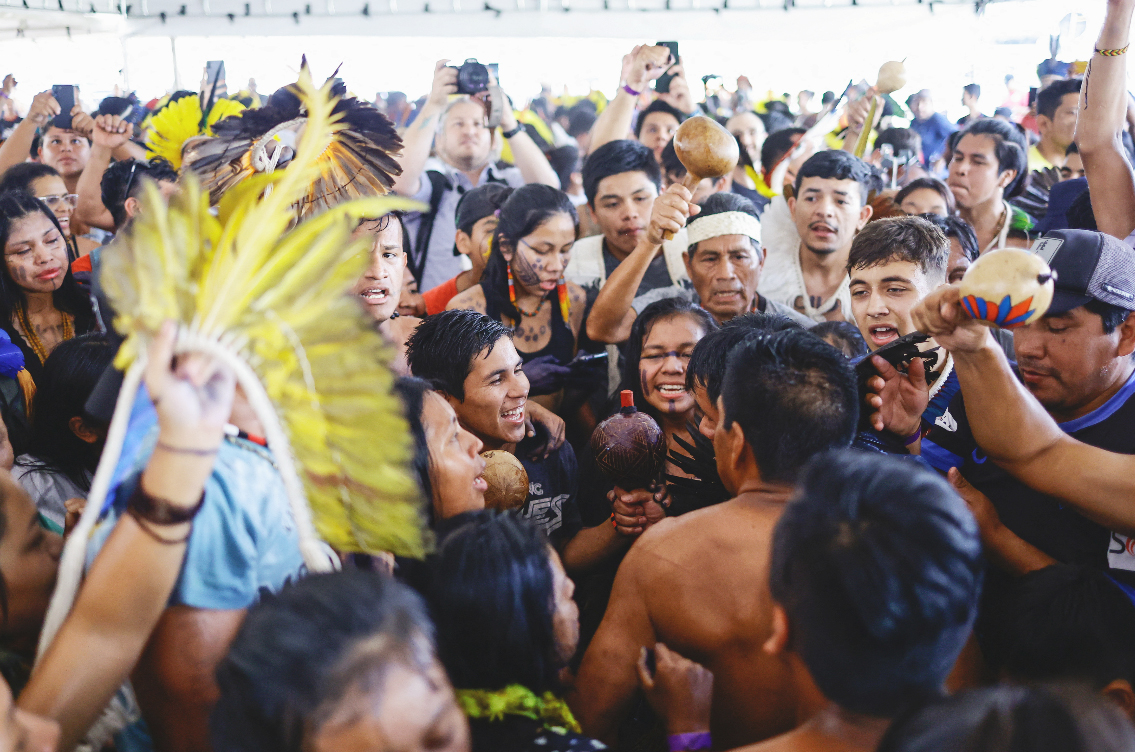BRASILIA, (Reuters) – A majority on Brazil’s Supreme Court overwhelmingly voted yesterday against a cut-off date limiting Indigenous land claims, a restriction sought by the powerful farm lobby to block rights to land that Indigenous people did not live on in 1988.
The court said 9 of its 11 justices rejected the deadline because it countered constitutional guarantees on Indigenous rights to ancestral lands. Two judges voted for the limit to end land conflicts and give farmers security on lands settled over the years in Brazil’s fast expanding agricultural frontier.
Brazil has 1.6 million Indigenous people according to the latest census, half of whom live on ancestral lands they say are vital to preserving their cultures and languages, mainly in the Amazon but also in farm states.
Indigenous groups protesting against the proposed deadline for land claims celebrated the court decision, dancing and chanting outside the Supreme Court in Brasilia.
“This is a momentous, historic victory for Brazil’s Indigenous peoples, and a massive defeat for the agribusiness lobby,” said Survival International Advocacy Director Fiona Watson, who said the time limit was an attempt to legalize the theft of millions of hectares of Indigenous land.
It was also a win for global efforts against climate change as Indigenous reservations preserve their forests, she added.
Indigenous leaders said the Supreme Court ruling was vital to resolve some 300 pending land recognition claims that would protect their communities from land-grabbers and invasion by illegal loggers and wildcat gold miners.
The court decision will give President Luiz Ignacio Lula da Silva grounds to veto a bill farm interests are rushing through Congress to limit new reservations to land that was occupied by native communities in 1988 when Brazil passed its Constitution.
The legislation was approved by the lower house in August and is now in the Senate where it will be voted on next week by the Constitution and Justice Committee.
Chief Almir of the Surui people of Mato Grosso and Rondonia states said he expects Congress to pass the bill because “the majority are anti-Indigenous, but we hope Lula won’t sign it.”
The agricultural caucus representing farmers in Congress deplored the court ruling and said it will push ahead anyway to get the bill approved in the Senate, while appealing to the judiciary for compensation for expropriated farm land.
“We want legal security for rural producers. The Supreme Court is fomenting barbarism in the countryside, total legal uncertainty,” the caucus said in a statement.
The case before the Supreme Court stems from a dispute in Santa Catarina state where the government rejected a land claim by the Xokleng people, who were evicted by tobacco farmers from what was their ancestral land. The state government argued that they were not living on the disputed area in 1988.
Opposing the deadline, justices said Indigenous communities not living on their lands in 1988 most likely had been expelled.
Defending the need for a cut-off date, Justice Gilmar Mendes said Indigenous people once inhabited all of Brazil before Europeans arrived 500 years ago and could make endless claims if there was no limit. Yet he voted to reject the proposal.






